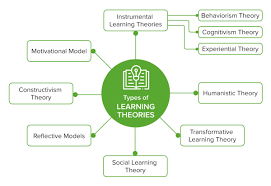
In the intricate world of pedagogy, learning theories are often regarded as the backbone of educational psychology. They serve as frameworks that describe how students absorb, process, and retain knowledge during learning. While some argue that these theories are merely academic concepts with no practical advantage, there’s substantial evidence supporting their significance in both instructional design and the learning process itself.
Firstly, learning theories such as behaviorism, cognitivism, constructivism, and connectivism offer insights into how learning occurs. Behaviorism centers on the idea that all behaviors are learned through interaction with the environment and focuses on measurable outcomes. Cognitivism looks at the mind’s internal processes and advocates for understanding on how learners process information. Constructivism argues that learners construct knowledge through experiences and reflections on those experiences. Lastly, connectivism posits that learning happens across a network of connections and emphasizes the role of digital technologies.
Understanding these theories is imperative for educators who wish to develop effective instructional strategies that cater to diverse learning styles and needs. They provide a foundation from whichteachers can create lesson plans, asses student performance, and adjust teaching methods in real-time for better educational outcomes.
Moreover, these theories also help educators understand the influence of social, emotional, and cognitive factors on learning. For instance, understanding that a student’s background could affect their ability to process new information (a concept rooted in constructivist theory) can lead to more inclusive teaching methods that aim to level the educational playing field for all students.
Applying learning theories can also foster a more engaging classroom environment. Knowledge of different ways in which students learn enables educators to create dynamic learning experiences—like interactive sessions or group activities—that can increase motivation and participation.
In conclusion, the importance of learning theories cannot be overstated. They are not merely abstract principles but practical tools that enhance teaching effectiveness and learning efficiency. By leveraging these theories, educators can innovate pedagogical methods that respect individual learning differences and prepare students better for an ever-evolving world. Hence whether you’re an educational veteran or new to the field, embracing these theories is crucial in delivering quality education.
